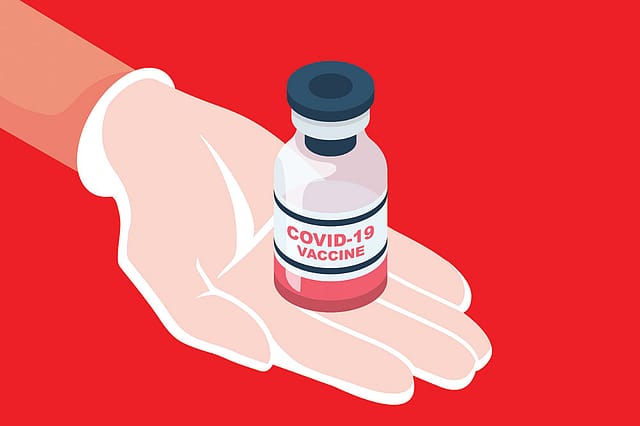A Vax “Boost” to Budget

The political math of Tuesday's Budget that can be expected to seek a balance between supporting livelihoods and sustaining growth will have a solid number to back a more optimistic outlook — 75% of India's eligible adult population has been vaccinated.
The signal achievement, along with more than 50% of those eligible in the 15-17 age group receiving their anti-Covid jabs, will encourage finance minister Nirmala Sitharaman to consider a more ambitious plan to sustain and nurture growth even while offering direct support for livelihoods still limping back to normalcy.
A significantly lower number of hospitalisations and deaths as compared to the Delta wave are strong evidence that Covishield and Covaxin, made in India vaccines that are the mainstay of the vaccination programme, are working well and reducing incidence of serious disease. This is reflecting in higher business confidence and will raise hopes that the trend of increased revenues can help the government plan ahead.
The Covid shadow is, of course, still looming, and the Omicron wave again provided a reminder of the virus's power to mutate and disrupt, and a focus on welfare support and health spending that were a hallmark of last year's proposals, can be expected to be accorded prominence in 2022 as well.
Sitharam can be expected to point out that the benefits of capital and other infusions into the health system, including grants to vaccine makers for the ongoing vaccine programme, are paying dividends and resulted in better management of the third wave of infections.
There will be relief in the government that the devastation caused by the Delta wave is receding and a recovery in terms of the economy and popular support is reflected in recent surveys where ratings for BJP-NDA improved as compared to June-July, 2021.
Openomics 2026: Continuity and Conviction
06 Feb 2026 - Vol 04 | Issue 57
The performance state at its peak
In fact, there lies the crux of the matter. The battering due to the Delta wave and resultant lock downs in various states took a heavy toll of earnings even as the death toll surged. But since then, the rapid expansion of the vaccination programme will give the finance minister the confidence to present a more optimistic picture.
The reform push in terms of more measures for ease of doing business that reduce red tape and encourage the small-medium sector as well as start ups can be anticipated.
The aspirational aspect of start ups, in terms of new growth models and upward mobility, has been strongly stressed by Prime Minister Narendra Modi in recent weeks.
Having done a timely retreat on farm laws that were opposed by an influential section of farmers, the government would like to signal its commitment for increasing farm income and facilitating incentives for modernising the sector. This would be a political point as well in the midst of the election campaign for five states including Punjab and UP.
The discussion on learning gaps in school education and the need for skilling has gained an urgency in the light of the disruptions due to Covid. On the one hand, the pandemic has opened — and encouraged — more options and attention on digital means but has also highlighted a gap in access to smart phones and laptops.
The ambitions implicit in a push for a more developed economy need some reflection in skilling in terms of enabling policies and direct support. There will, as always, be a discussion on tax and the middle class. Sitharam side-stepped the "Covid tax/cess" bullet last year and may do so again even if revenue and spending priorities mean no significant sops for this vocal segment.
